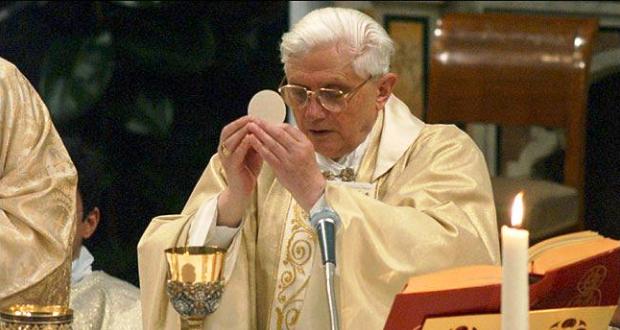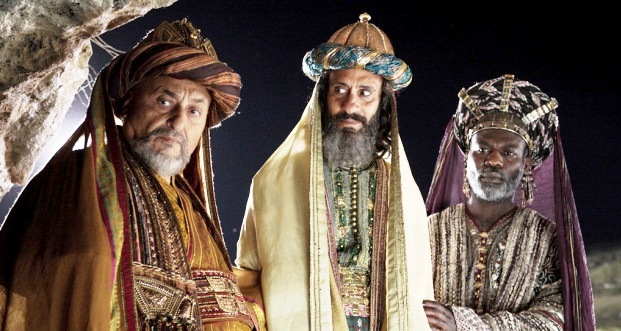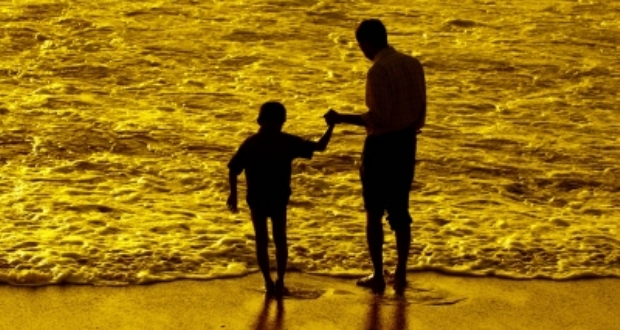The Solemnity Of The Most Holy Trinity – The Mystery Of God’s Love

(Fr Dexter Brereton, CSSp ThM STL)
The liturgical year of the Catholic Church contains two kinds of feast (major celebrations ). The first and most frequent kind of celebration is known as a “mystery” feast or a “story” feast. This kind of feast commemorates saving events in the history of salvation e.g. Christmas (birth of Our Lord), Easter (the resurrection of Jesus). The other kind of celebration is known as an “idea” feast. An idea feast celebrates important notions or concepts or ideas in the Christian faith. Well today’s feast, the Solemnity of the Most Holy Trinity is such a feast. It is an ideal feast. We celebrate the central belief of our Church which is expressed in what we call the “Doctrine of the Holy Trinity.” This doctrine is the answer to a question: “When you say God…what do you mean?”We say: “Based our experience of God and that of those who have gone before us, we affirm with Israel that there is only ONE GOD. This God is a Trinity of persons, Father, Son and Holy Spirit, each person distinct from the other two: the Father is not the Son nor is the Father the Holy Spirit, the Son is neither Father nor Spirit and the Spirit is neither Father nor is the Spirit the Son, yet this God remains one.”
As we see in this morning’s first reading from Deuteronomy God is not something remote from us, locked up in unfathomable mystery, nor does God demand we do elaborate ceremonies or rituals. In Haiti, the religion of much of the people there is a form of West African worship called Vodou. It is based fundamentally on worship of intermediate spirits between God and humans and these spirits control various aspects of nature and various human activities such as war or art or music. The spirits or loas must be very precisely worshipped and the devotees may find themselves severely punished if they have not made the correct kind of worship or sacrifice to their personal loa. Moreover, when in the midst of worship, instead of harmonious communion between God and man, the loa is said to ride the worshipper, to use the worshipper as his/her ‘mount’ (horse) and utterly possesses them during the possession phase that is essential to Vodou worship. Their natural personality is completely suppressed and the personality of the loa emerges.
I say all this to say that the God of the bible stands in great contrast to all this. The God we worship, is far beyond our imagination yet closer to us than our own skin so that we do not have to beat drums or engage in elaborate ritual sacrifices to hear him speak to us. The names Father Son and Holy Spirit which we use to name this God of ours, invite us to further reflection, to a closer encounter. What we are dealing with here is what St Thomas Aquinas would refer to as ‘analogy’ or, in more technical terms, ‘analogical predication.’ To say that we can speak of God by the process of analogy is to say that there is a language which ‘kind of’ tells us what God is like, in this language of analogy we find both similarity and difference to our human experiences. When we use the word “Father” for God we are pointed towards the experience of a good human father to say something essential about God. The human father stands at the origin of his offspring, in the same manner, God stands at the origins of all things, of all that exists. More than this, for the believer, we hold that we are the objects of God’s exquisite care, right from the very first moment of our existence. This is what God’s fatherhood means for human beings. On the other hand, God is unlike human fathers since human fathers are prone to sin, are often neglectful of their children or cruel towards them. So while God fulfills a function similar to a human father in respect to giving rise to his offspring, God is also unlike a human father in respect to his behaviour towards his children.
In a similar manner to say that God is Spirit is also to use the language of analogy. In the bible the word translated into English as “Spirit” means ‘breath’ or ‘wind.’ In Hebrew, ‘Ruah’. Think of our experience of the wind or the air. The air is everywhere present, it fills all living creatures, it surrounds us like an invisible ocean, and is essential for life. All this can be said of God, who is everywhere, silent, unseen but all-powerful. Like the wind, God can manifest Godself in the gentle touch of a breeze or a raging storm. God is the infinite ocean in which we move and exist and no life can continue without God’s sustaining presence.
To say that God is “Son” is also to use the language of analogy. We find something of God’s nature in the story of Jesus. In and through Jesus, divinity manifests itself, not as absolute origin of all things, not as life-giving breath, but as loving obedience personified, as a total “yes” a total surrender to the divine will. This is very important for a balanced spirituality. God is reflected not only in the one who commands, but in the one who obeys. God is not only all-powerful command, God is also in perfect response.
This is just a foundation for further reflection. I wish to suggest a few questions for you:
- Ask yourself: Who is God to me really? Do I REALLY BELIEVE that God cares about me?
- Ask yourself: What is the source of my strength? Do I find my strength and my courage in God or from somewhere else?
- Ask yourself: Am I trustful with God and his Word as Jesus was? How do I respond to what God demands of me? Do I obey promptly, or do I hesitate?






